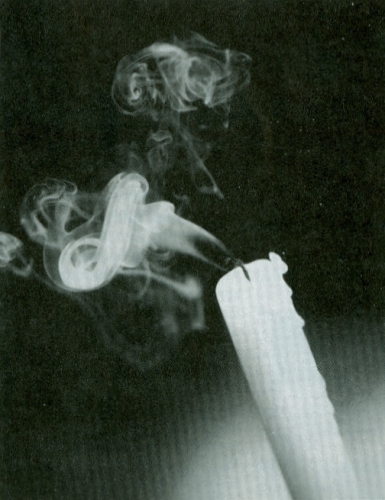The wanderer vacchagotta once asked the Buddha what became of the Tathagata (the “Enlightened One”) after death. But no matter how Vacchagotta phrased the inquiry, the Buddha explained that his question did not apply. Finally, he asked Vacchagotta to imagine a fire.
“Suppose someone where to ask you, Vaccha, ‘This fire burning in front of you, on what does it depend for its burning?’”
Vacchagotta answered, “I would reply that it is dependent upon the wood.”

“And suppose that the fire were to go out. What would you answer the person who asked you, ‘This fire that was burning in front of you—in which direction has it gone? East? West? North? South?’ How would you reply?”
“That question does not apply, Master Gotama. The fire, having consumed the fuel which allowed it to burn, and not being offered any other, would be called ‘out’ [literally, ‘unbound’].’”
“Just so, Vaccha,” concluded the Buddha. “Freed from the classification of form, the Tathagata is deep, boundless, hard to fathom, like the sea. ‘Reappears’ does not apply. ‘Does not reappear’ does not apply. ‘Both does and does not reappear’ does not apply. ‘Neither reappears nor does not reappear’ does not apply.” Whereupon, full of joy, Vacchagotta told the Buddha that his words were like a lamp carried into a dark room and took refuge, following him until the end of his days.
That was then. This is now. But surprisingly little has changed. The answer we receive from the Buddha’s teaching corresponds exactly to the depth of the questions we bring to it.
On a trip to England in 1976, the Theravadan monk Ajahn Chah, having reached the end of his teaching, asked those assembled, “Are there any final questions? Anything you are still not satisfied with?”
“Yes,” a woman answered. “I have been listening to these teachings for years and have never received a satisfactory answer to the question, ‘What kind of state is nirvana? Do we still exist or not?’”
A candle was burning beside the platform on which Ajahn Chah sat. Wetting his fingers, he leaned over and extinguished it.
“Now that the candle is out, is there anything further we can say about it—where it has gone, whether it exists somewhere else or not?” he asked. And when his questioner gave no sign of answering, he added, “No. There is nothing we can say that applies.”
“Does my answer satisfy you?” he asked.
“No,” the woman replied.
“In that case,” concluded Ajahn Chah, “I am not satisfied with your question either.”